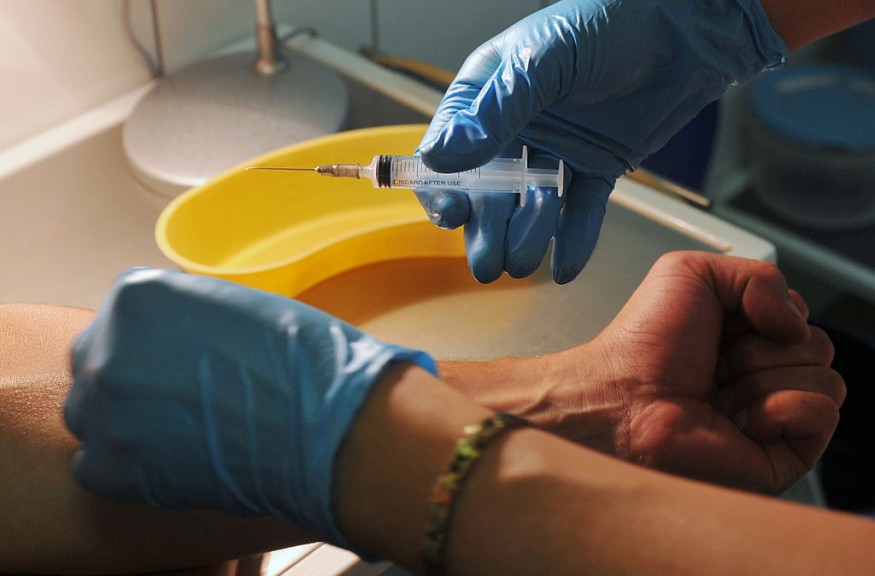A new study recently examined the engineering of type B white blood cells in a patient's body to secrete anti-HIV antibodies in response to the virus.
As specified in a EurekAlert! report, the research from Tel Aviv University offers a new and unique treatment for AIDS which may be developed into a vaccine or a single-time treatment for patients who have HIV.
This work was led by Dr. Adi Barzel and Ph.D. student Alessio Nehmad, boh from the school of neurobiology, biochemistry, and biophysics at the George S. Wise Faculty of life sciences and the Dotan enter for Advanced Therapies, in partnership with the Sourasky Medical Center.
Furthermore, the study was carried out in collaboration with additional researchers from the United States and Israel.

Potential for Permanent Cure
Over the past 20 years, the lives of many AIDS patients have improved as an outcome of the administration of treatments that change the disease from deadly to chronic.
Nonetheless, there's still a long way to go before a treatment is found that would offer the patients a permanent cure.
One plausible way to do it, with a one-time inoculation, was developed for the first time in the laboratory of Dr. Barzel.
The technique created in this laboratory uses type B white blood cells that would be genetically engineered inside a patient's body to secrete neutralizing antibodies against the HIV causing the disease.
Producing Antibodies Against Viruses and Bacteria
Essentially, B cells are a type of white blood cell responsible for producing antibodies against viruses and bacteria, among others.
In addition, B cells are formed in the bone marrow, and when they mature, they move into the blood and lymphatic system and from there to the different parts of the body.
Describing the newly developed HIV treatment, Dr. Barzel explained that until now, only a few researchers, "and we among them," had been able to engineer B cells outside the body.
And in this research published in Nature Biotechnology, the study lead added that they were the "first to do this" in the body and make the cells generate desired antibodies.
Favorable Response from Model Animals
Essentially, genetic engineering is done with viral carriers emanated from viruses engineered for them not to cause damage, only to bring the gene coding for the antibody in the body, specifically into the B cells.
Additionally, in this particular case, the researchers could precisely introduce the antibodies into a desired area in the B cell genome.
All model animals who had been given the treatment responded and had high amounts of the desired antibody in their blood.
The researchers generated the antibody from the blood and guaranteed it was effective in counteracting HIV in the lab dish.
Gene Editing with CRISPR
The genetic editing was carried out with CRISPR, a technology based on a bacterial immune system against viruses.
The bacteria utilize the CRISPR systems as a sort of molecular "search engine: to locate viral sequences and cut them to be disabled.
Meanwhile, Alessio Nehmad, a Ph.D. student, heightens the use of CRISPR, saying they're incorporating the capability of CRISPR to direct the genes' introduction into desired areas along with the capabilities of viral carriers to deliver desired genes to desired cells.
Therefore, according to a similar Medical Xpress report, the researchers could engineer the B cells inside the patient's body. They use a pair of viral carriers of the AAV family, one carrier codes for the desired body, and the second codes the CRISPR system.
A new technology offers treatment for HIV infection through a single injection @NatureBiotech https://t.co/vJl8jxPA5l https://t.co/ttFnBDdkmM
— Medical Xpress (@medical_xpress) June 13, 2022
When the CRISPR cuts in the desired site in the B cells' genome, it directs the desired gene's introduction- the gene coding for the antibody against the HIV causing AIDS.
One-Time Injection
At present, explained the researchers, there is no genetic treatment for AIDS. Therefore, research opportunities are extensive. Barzel then concluded that they developed an innovative treatment that may beat the virus with a one-time inoculation, potentially bringing out remarkable improvement in the condition of patients.
Furthermore, when the engineered B cells encounter the virus, the latter enables and encourages them to split; thus, the researchers use the disease's very cause to fight against it.
Based on this research, it can be expected that, over the coming years, scientists will be able to produce in this manner, a drug for AIDS, additional infectious diseases, as well as for certain cancer types caused by a virus, like cervical cancer and head and neck cancer, among others.
Related information about antibodies against HIV is shown on Alegria Imunopatologia FMUSP's YouTube video below:
RELATED ARTICLE : HIV is Now a Treatable, Preventable Disease; Medical Breakthrough Worth Celebrating this World Aids Day
Check out for more news and information on HIV in Science Times.










